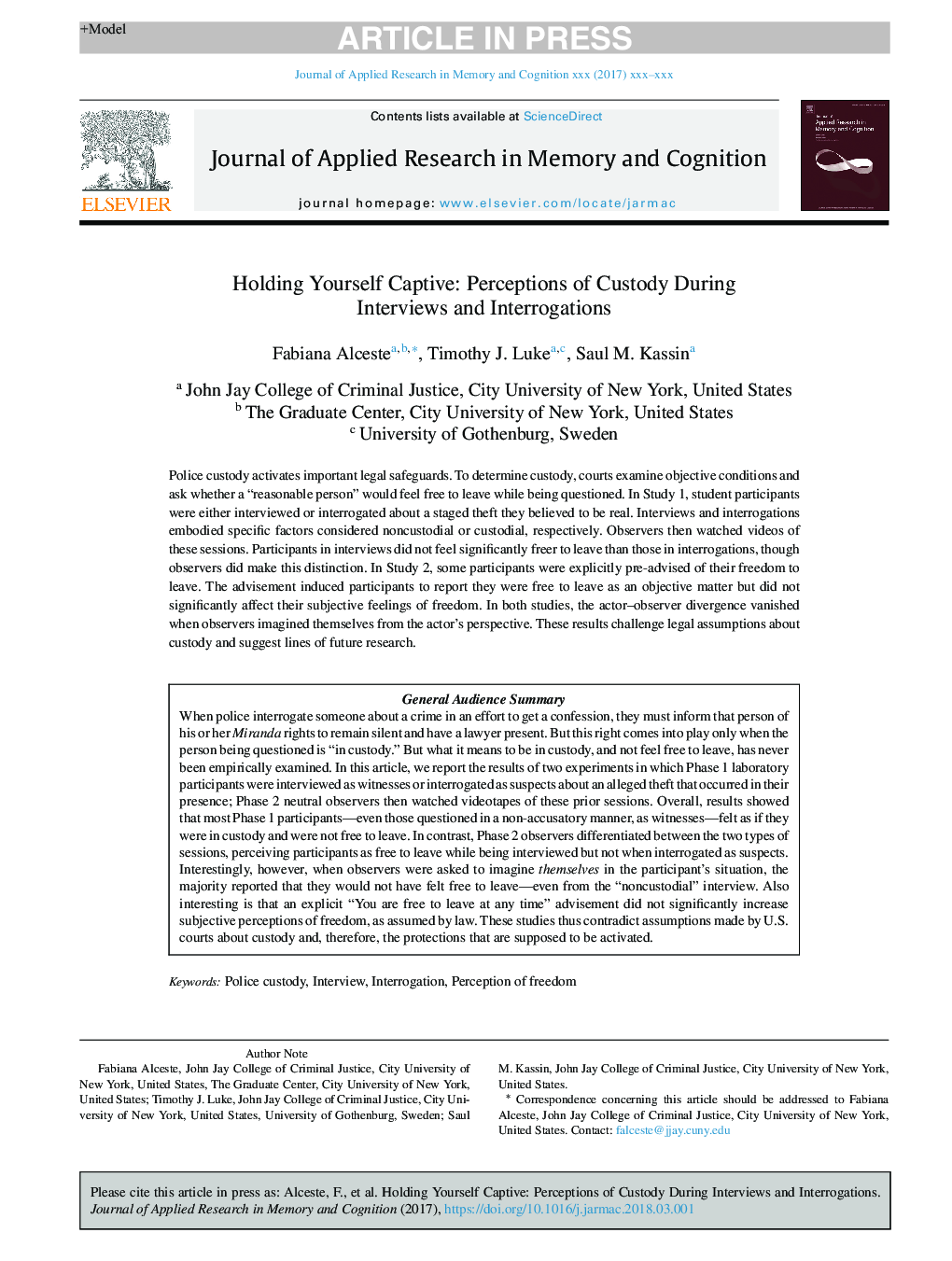| Article ID | Journal | Published Year | Pages | File Type |
|---|---|---|---|---|
| 10153250 | Journal of Applied Research in Memory and Cognition | 2018 | 11 Pages |
Abstract
Police custody activates important legal safeguards. To determine custody, courts examine objective conditions and ask whether a “reasonable person” would feel free to leave while being questioned. In Study 1, student participants were either interviewed or interrogated about a staged theft they believed to be real. Interviews and interrogations embodied specific factors considered noncustodial or custodial, respectively. Observers then watched videos of these sessions. Participants in interviews did not feel significantly freer to leave than those in interrogations, though observers did make this distinction. In Study 2, some participants were explicitly pre-advised of their freedom to leave. The advisement induced participants to report they were free to leave as an objective matter but did not significantly affect their subjective feelings of freedom. In both studies, the actor-observer divergence vanished when observers imagined themselves from the actor's perspective. These results challenge legal assumptions about custody and suggest lines of future research.
Keywords
Related Topics
Social Sciences and Humanities
Psychology
Applied Psychology
Authors
Fabiana Alceste, Timothy J. Luke, Saul M. Kassin,
